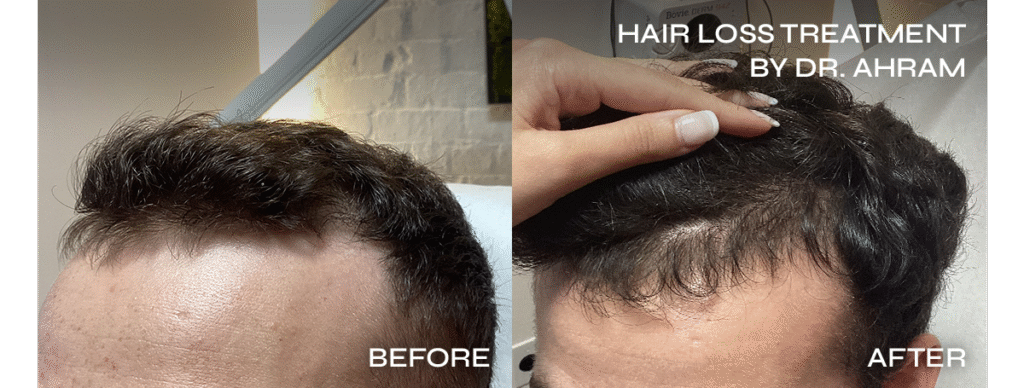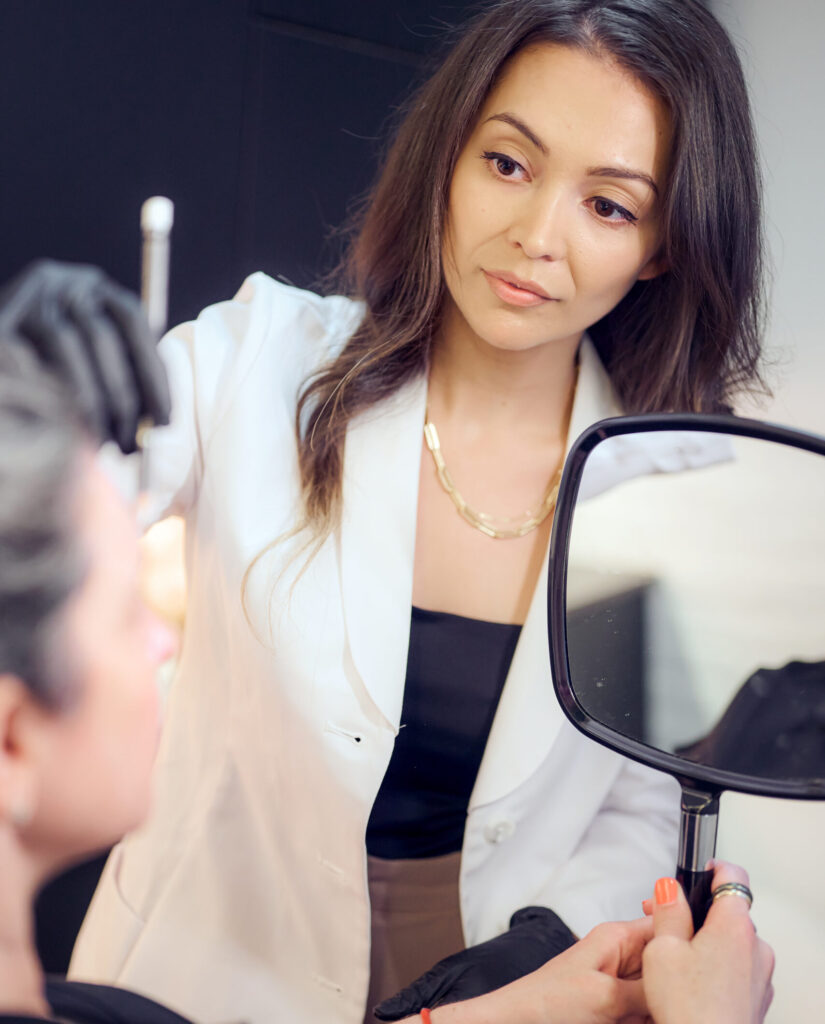Hair loss or alopecia is one of the most common yet complex concerns seen in dermatology offices today. It affects both men and women and can have a deep emotional impact, often tied to confidence and identity.
While losing 50-100 hairs daily is normal, consistent shedding or visible thinning may point to an underlying imbalance in the scalp, hormones, or overall health.
To explore this topic, Dr. Dhaval Bhanusali and Dr. Aya Ahram of Hudson Dermatology and Laser Surgery sat down to answer some of the most common questions about hair loss, treatment options, and what really works. Their insights reveal why this condition requires both medical expertise and long-term commitment.
Common Causes of Hair Loss
According to Dr. Ahram, three factors often top the list for women experiencing hair loss:
“Genetic factors, hormonal factors, and stress,” she says.
1. Genetics (Androgenic Alopecia)
Often referred to as male or female pattern hair loss, this inherited condition is influenced by hormones like DHT (Dihydrotestosterone). It causes gradual thinning, receding hairlines, or widening parts.
2. Hormonal Shifts
Life stages such as pregnancy, menopause, or thyroid changes can all affect the hair growth cycle.
3. Stress and Lifestyle
High stress levels can trigger a condition known as telogen effluvium, where hair prematurely enters the shedding phase. Nutritional deficiencies or restrictive diets can further compound the problem.
Dr. Bhanusali notes that while these are the most common triggers, no two cases are exactly alike.
“Hair loss isn’t a one-shot thing,” he explains. “You don’t just treat it once and it’s gone. There’s no cure for hair loss - but there are ways to manage it effectively with consistency.”
Why Consistency Matters with hair loss
Both Dr. Bhanusali and Dr. Ahram emphasize that one of the biggest misconceptions about hair loss is expecting quick results. Treatments require time (often months) to show measurable change.
“Consistency is key,” says Dr. Bhanusali. “It’s a long process, but when patients commit, we see real improvement.”
Hair growth occurs in cycles, and even the most effective therapies can only influence new growth phases over time. Dermatologists typically monitor patients over several months to evaluate progress and adjust treatments accordingly.
The Scalp: The Foundation of Hair Health
Before addressing treatments, Dr. Ahram reminds patients that the scalp itself plays a crucial role.
“I think of the scalp as soil,” she explains. “If the soil isn’t healthy, the grass can’t grow.”
A healthy scalp supports stronger, more resilient hair follicles. For those experiencing inflammation, flaking, or itching, ketoconazole-based shampoos such as Nizoral can be a helpful first step. This ingredient has mild DHT-blocking properties and can calm irritation, setting the stage for healthier growth.

Professional Hair Loss Treatments
Modern dermatology offers a wide range of tools for hair restoration – from prescription topicals to in-office procedures.
1. Topical and Oral Medications
- Minoxidil and Finasteride remain FDA-approved standards for hereditary hair loss.
- Compounded treatments, such as Topical Finasteride or Topical Dutasteride, available through platforms like HairStim or Skin Medicinals, can target hair loss more precisely under dermatologist supervision.
2. Laser and Light Therapies
Low-level laser therapy (including red light caps) can stimulate blood flow to hair follicles and may encourage regrowth over time.
3. Platelet-Rich Plasma (PRP)
PRP uses growth factors from a patient’s own blood to stimulate dormant follicles – a treatment gaining popularity for both men and women.
4. Hair Transplantation
While highly effective in advanced cases, both doctors agree that hair transplantation should be a last resort after exploring medical management.
“Do everything you possibly can before doing a hair transplant,” says Dr. Bhanusali. “You only have so many hairs you can transplant and so much surface area to cover. Using topicals first gives you a better chance at the outcome you want.”
Dr. Ahram adds,
“We still start most patients on topical or oral regimens even if they’re planning a transplant. It helps protect and maximize existing hair.”

Book your science-backed hair restoration treatment today
Our Board-certified dermatologists will recommend and guide you through your optimal science-backed treatment for regrowing lost hair and preventing further hair loss.
